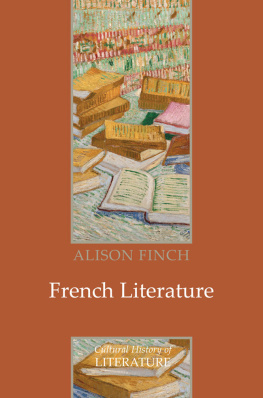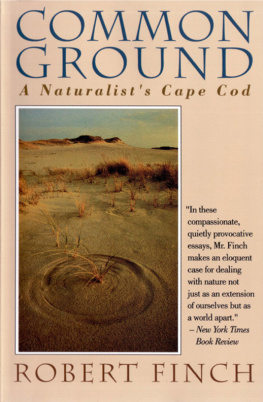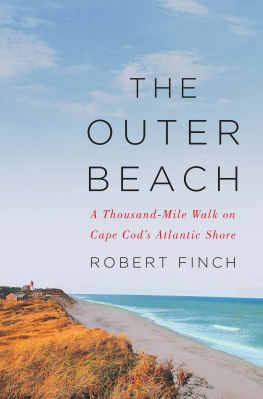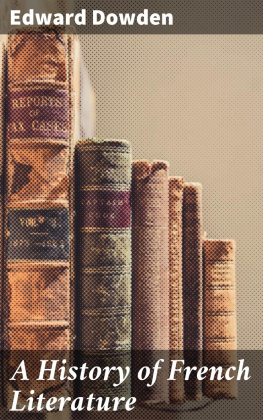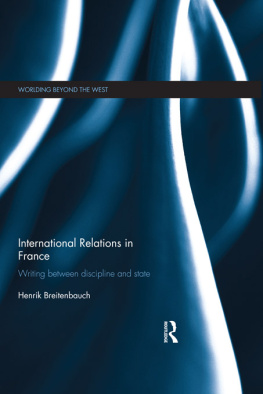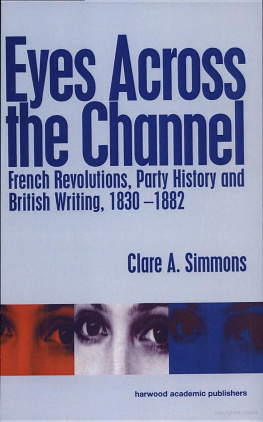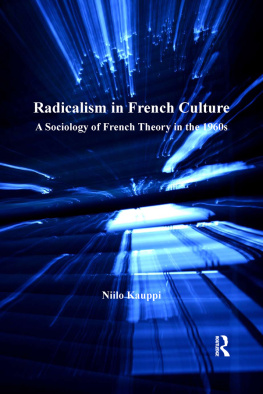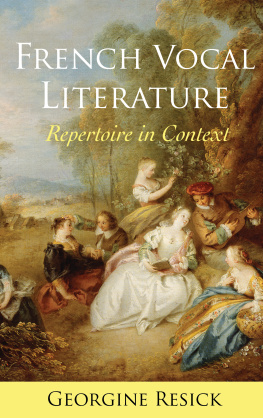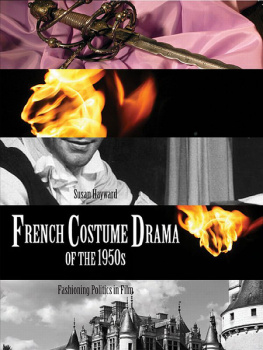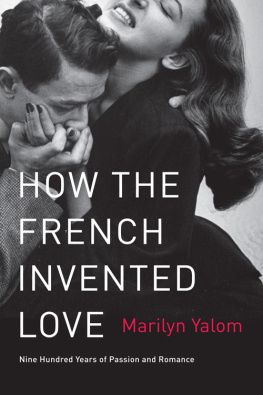Cultural History of Literature
Christopher Cannon, Middle English Literature
Sandra Clark, Renaissance Drama
Glenda Dicker/sun, African American Theater
Alison Finch, French Literature
Ann Hallamore Caesar and Michael Caesar, Modern Italian Literature
Roger Luckhurst, Science Fiction
Michael Minden, Modern German Literature
Katie Normington, Medieval English Drama
Lynne Pearce, Romance Writing
Charles J. Rzepka, Detective Fiction
Jason Scott-Warren, Early Modern English Literature
Charlotte Sussman, Eighteenth-Century English Literature
Mary Trotter, Modern Irish Theatre
Andrew Baruch Wachtel and Ilya Vinitsky, Russian Literature
Andrew J. Webber, The European Avant-Garde
Tim Whitmarsh, Ancient Greek Literature
Copyright Alison Finch 2010
The right of Alison Finch to be identified as Author of this Work has been asserted in accordance with the UK Copyright, Designs and Patents Act 1988.
First published in 2010 by Polity Press
Polity Press
65 Bridge Street
Cambridge CB2 1UR, UK
Polity Press
350 Main Street
Malden, MA 02148, USA
All rights reserved. Except for the quotation of short passages for the purpose of criticism and review, no part of this publication may be reproduced, stored in a retrieval system, or transmitted, in any form or by any means, electronic, mechanical, photocopying, recording or otherwise, without the prior permission of the publisher.
ISBN-13: 978-0-7456-2839-4 (hardback)
ISBN-13: 978-0-7456-2840-0 (paperback)
ISBN-13: 978-0-7456-5720-2 (Single-user ebook)
ISBN-13: 978-0-7456-5719-6 (Multi-user ebook)
A catalogue record for this book is available from the British Library.
The publisher has used its best endeavours to ensure that the URLs for external websites referred to in this book are correct and active at the time of going to press. However, the publisher has no responsibility for the websites and can make no guarantee that a site will remain live or that the content is or will remain appropriate.
Every effort has been made to trace all copyright holders, but if any have been inadvertently overlooked the publisher will be pleased to include any necessary credits in any subsequent reprint or edition.
For further information on Polity, visit our website: www.politybooks.com
In loving memory of my husband Malcolm Bowie, 19432007
Acknowledgements
My first debt of gratitude is to Andrea Drugan, my editor at Polity, who has been unfailingly encouraging and patient, and a fount of shrewd advice. My warm thanks go to her, and also to the readers enlisted by Polity to comment on the draft of this book, Laurence M. Porter and Timothy Unwin. Their suggestions were enormously helpful; any faults remaining are entirely mine. Finally, I want to thank my family, in particular my son and daughter Sam and Jess Bowie, for all their support during the writing of the book.
Note on References, Bibliography and Translations
Since this book is aimed at a wide audience, I avoid footnotes and give page references only for major quotations, but I have drawn on the work of many specialists and provide as full a bibliography of secondary works as possible. (Page references always refer to the editions cited in the bibliography.) Life-dates are given for most authors discussed, except very minor ones or those mentioned only in passing; some dates are repeated where this might be helpful. Italics, ellipses and translations are mine unless otherwise stated. Published translations are sometimes slightly adjusted.
Introduction
The body of writing that we call French literature has had a striking impact on the rest of the Western world. Courtly romance spread all across Europe from the mid-twelfth century on, as did French models of chivalric behaviour and love, originating in these romances and the troubadour tradition whose golden age was between about 1160 and 1230. These still shape our ways of thinking, even of feeling. Montaignes essays (157292), translated into English in 1603 and rapidly into other European languages, influenced Shakespeare and have left an indelible impression on European culture. The ideas and even the phrases current in France during the eighteenth century spurred on the American Revolution and contributed to the wording of the American Declaration of Independence (1776); theories of democracy and tolerance either conceived or publicized by the French Enlightenment continue to govern Western liberal political thought. Plays written by French authors have become the libretti of some of Europes greatest operas: Beaumarchais gave us The Marriage of Figaro (the play was first performed in 1784, Mozarts opera in 1786); Hugo gave us the plot of Rigoletto (play, Le Roi samuse , 1832; Verdis opera, 1851). In the early twentieth century, the Bloomsbury circle turned to French poetry to embolden it in its experimentation; the mid-twentieth-century New York School poets were francophiles (Kenneth Koch sometimes wrote in French and John Ashbery was a Columbia doctoral student in French). Samuel Beckett preferred to write in French rather than English. Post-Second World War French thinkers such as Lvi-Strauss, Foucault and Derrida have taken the humanities by storm in the universities of anglophone and other nations; while Simone de Beauvoirs Second Sex (1949), translated into English only a few years after publication (1953), led the growth of late twentieth-century feminism in anglophone countries.
Indeed, for centuries the French language itself had unparalleled prestige in Europe. Many English works owed their diffusion in other European countries to the fact that they were translated into French and then from French into another language such as German. All over Europe, French succeeded Latin as the international language: famously, the Academy of Berlin offered a prize in 1782 for the best essay (in French) on this subject: What has made French the universal language of Europe? (Quest-ce qui a fait de la langue franaise la langue universelle de lEurope?) Although the revolutionary and Napoleonic wars would reduce this vogue for French, it remained the language of choice in many parts of Europe: as readers of Tolstoy will know, the Russian aristocracy was still speaking it in the last decades of the nineteenth century.
In other areas, too, French culture has shaped our representation of the world. Monet was the begetter of Impressionism; Paris played a spectacular role in nineteenth- and twentieth-century painting, drawing into its ambit many artists of other nationalities such as Picasso. France has bequeathed to the world its cuisine (a French word), its fairy-tales (such stories as those of Sleeping Beauty and Puss-in-Boots were first collected and written down by Perrault in the seventeenth century), and its films. For despite the current commercial domination of Hollywood, it was in France that cinema was invented, and it continues to influence world cinema in more ways than are widely realized. Such key concepts as film noir, cinaste and auteur cinema are French; Jean Renoirs La Rgle du jeu ( The Rules of the Game , 1939) is still rated among the top ten films ever made, one of the only two non-American films to have had that accolade in every decade for the last fifty years. (The other is Eisensteins Battleship Potemkin , almost always, however, lower on the list than the Renoir. Sight and Sound , the magazine of the British Film Institute, conducts polls of leading film critics every decade to establish the ranking.) The major international film festival is held in Cannes. And Anglo-American cinema owes some unexpected debts to France: for instance, the plot of Hitchcocks best film Vertigo (1958) is based on the French novel Sueurs froides: dentre les morts (1954, by Pierre Boileau and Thomas Narcejac).

